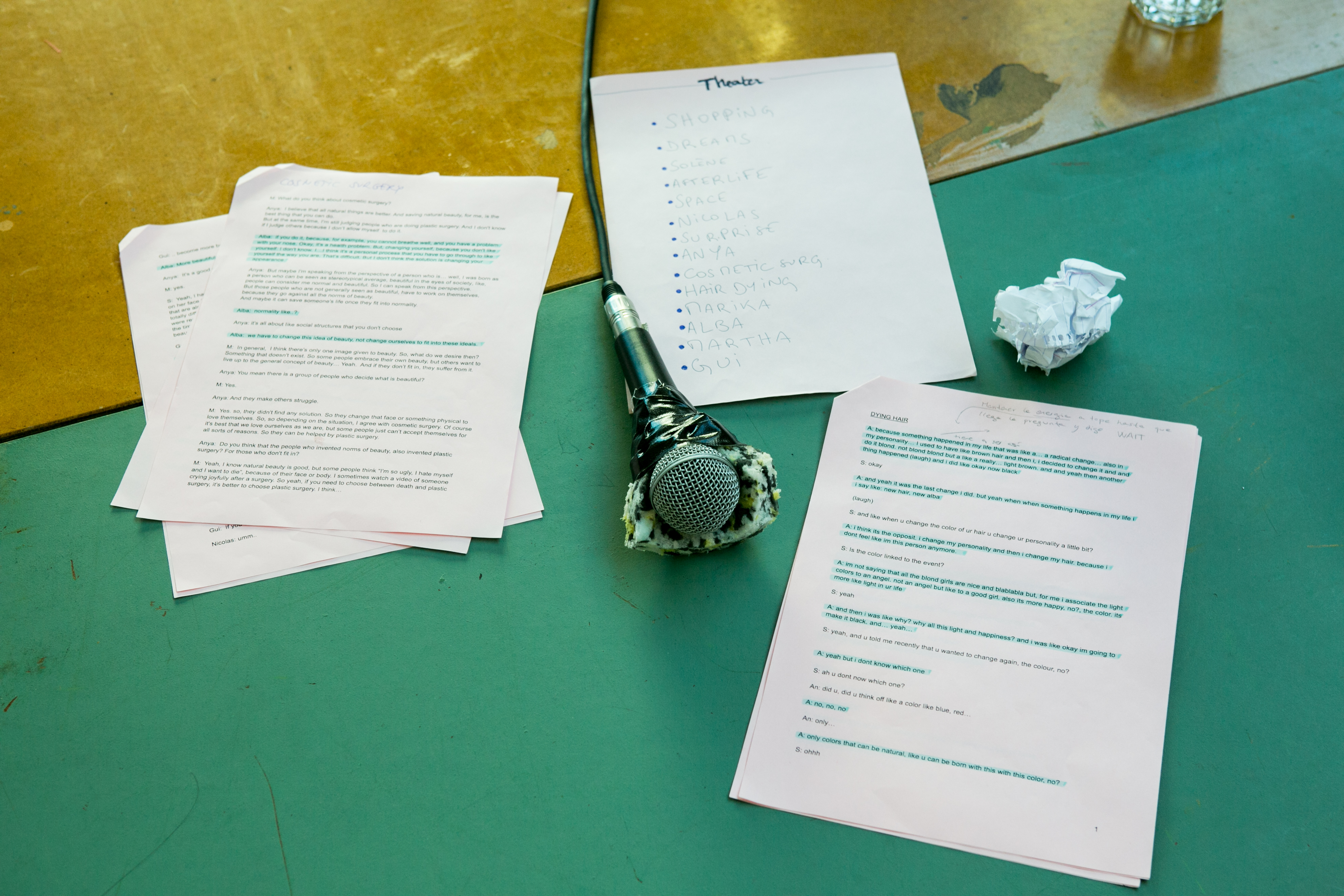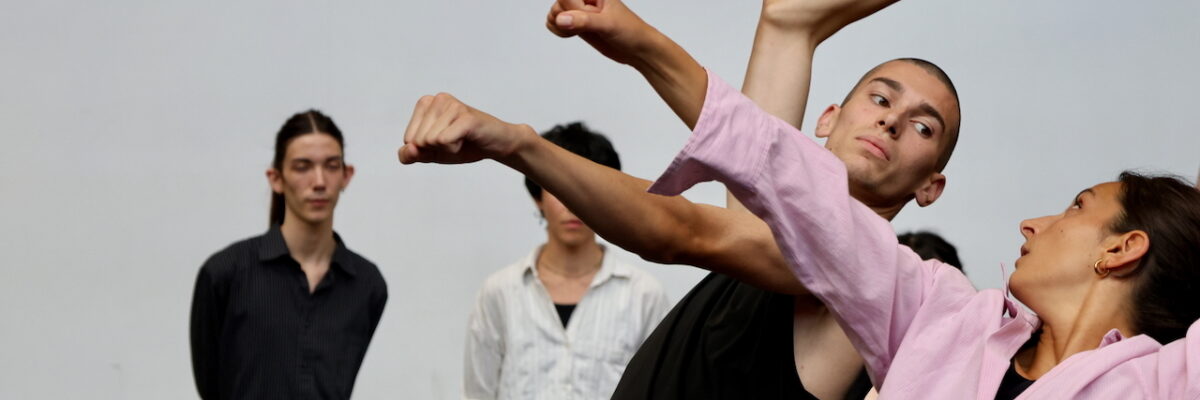Overview courses:
Theory I (1st year): 9 ECTS
Theory II (2nd year) - 11 ECTS
Theory III (3rd year) - 14-17 ECTS
THEORY
Dance history (1st, 2nd and 3rd year)
The course treats the main paradigms of the history of theatrical dance. Within each period, a number of historical cases (choreographers, forms, styles) are unfolded with the help of theoretical notions such as body, figure, spectacle, avant-garde, the sublime, expression, ritual, simulacrum, musicality and dance, thinking-concept-movement, spectatorship and participation.
Philosophy and critical theory (1st and 2nd year)
The philosophy classes do not aim at offering a compendium or encyclopedic overview of the history and main topics of philosophy, but start from a specific topic that is in the heart of the research of the teachers. Through the discussion of this topic, links to the history and structures of philosophy are naturally made. The critical theory classes discuss topics like gender, racism, de-colonial thinking and others.
Sociology
In the 1st year, the introduction discusses basic concepts such as class, role, social ritual, institution, institutional differentiation, rationalisation, and also refers to classical sociological approaches and topics, such as the individual and consciousness as a black box, or theories of globalisation.
In the 2nd year, the sociology course focuses on the cultural field, through an institutional analysis of the structure and evolution of the Western art system. Another course in the 2nd year focuses on gender theories.
Performance analysis
In the performance analysis classes, students develop a vocabulary to discuss performances they have seen live or on video. The goal is to refine their reflection and discussion of art works, to go resolutely beyond ‘liking’ or ‘not-liking’ as the start of an analysis of an artwork.
Topical seminars
In the 3rd year, theory becomes even more a practice of reading, thinking and discussing. Theory is approached as theory, but the content of the seminars can be very diverse, ranging from very abstract concepts to concrete political or social issues, from themes that are very far from the arts to topics that deal with the relation between art and society. In recent years, seminars dealt with topics such as artistic versus a political activism, methodologies of making work, queer theory, the bible, technologies of the self…
Management
In the ‘management’ course (3rd year), students learn to know and discuss about important elements of the organisation of professional life, such as production, organisation, touring, co-production, partnerships and curating, but also about time management, public funding.
Writing class
Each year, the student writes an essay connecting works of art with theoretical questions. This essay is preceded by specific written exercises that contribute to the development of the essay. This writing is accompanied by a series of classes introducing basic concepts, potential topics, working strategies etc., and by coaching sessions in small groups. In the 2nd year, there is a separate writing workshop that focuses on the writing of a program note that accompanies the duet/trio on live music
Performance visits
Collective visits to performances in Brussels and elsewhere are an integral part of the programme, 10-15 times per year. The programme is compiled by the school. In the 3rd year, students can choose more of their own programmes and make a report of their performance visits.


